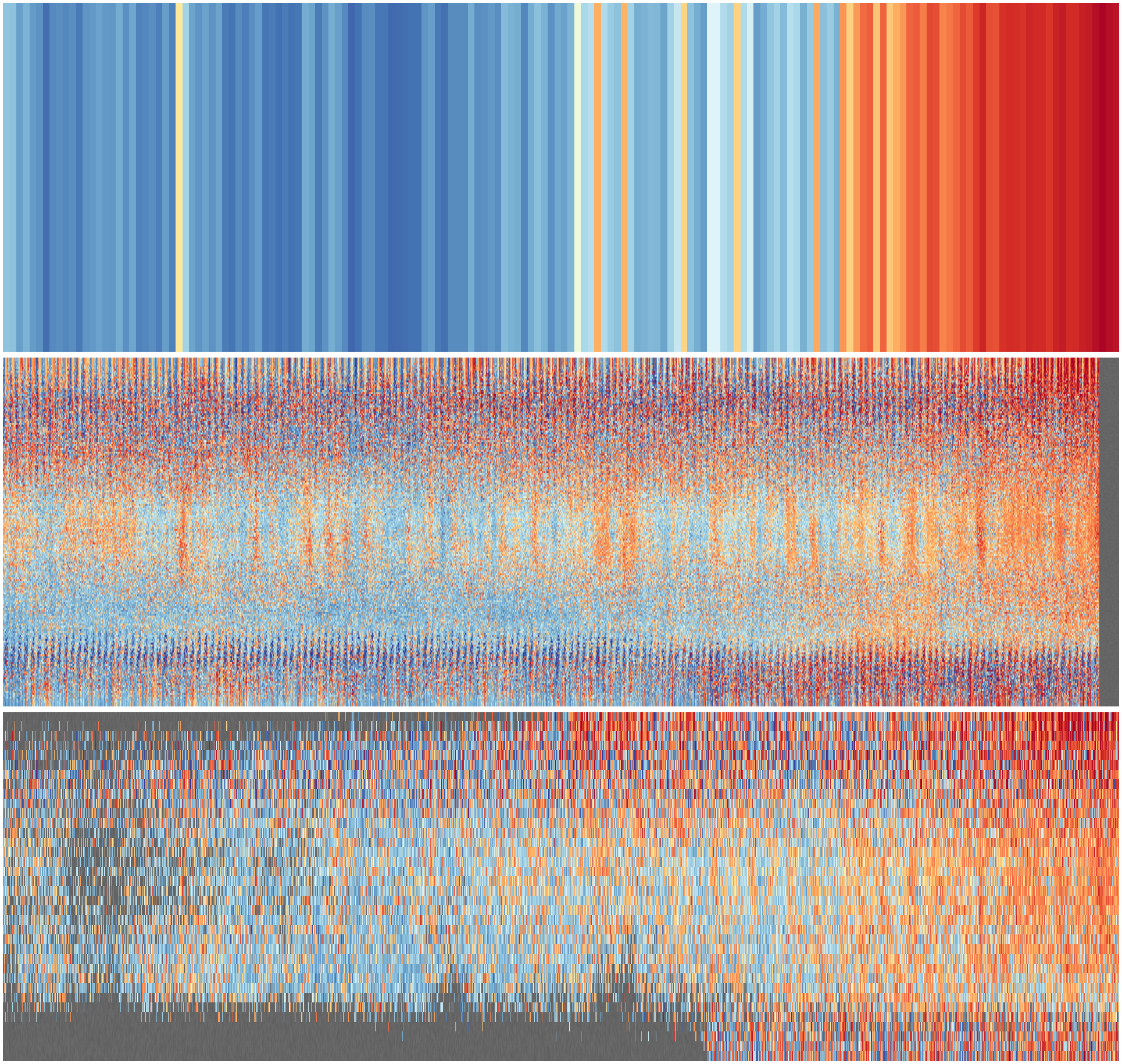# Utility functions for the Stripes plots
import re
import numpy as np
from astropy.convolution import convolve
rng = np.random.default_rng()
import warnings
warnings.filterwarnings("ignore", message=".*NaN values detected post convolution.*")
# Longitude reduction
def longitude_reduce(choice, ndata, mask=None):
nd2d = np.squeeze(ndata)
result = np.ma.masked_array(np.full([nd2d.shape[0], 1], np.nan))
result[:] = np.ma.masked
if mask is None:
mask = np.full(nd2d.shape, False)
if choice == "sample":
for i in range(nd2d.shape[0]): # Iterate over latitudes
alat = nd2d[i, :]
if len(alat) > 0:
alat = alat[~mask[i, :]]
if len(alat) > 0:
result[i, 0] = rng.choice(alat, size=1)[0]
if ~np.isnan(result[i, 0]):
result.mask[i, 0] = False
return result
if choice == "mean":
nd2d.mask = np.ma.mask_or(nd2d.mask, mask)
for i in range(nd2d.shape[0]): # Iterate over latitudes
alat = nd2d[i, :].compressed()
if len(alat) > 0:
result[i, 0] = np.mean(alat)
result.mask[i, 0] = False
return result
raise Exception("Unsupported reduction choice %s" % choice)
# Paired Longitude reduction - both datasets sample from the same grid point
def longitude_reduce_paired(choice, ndata1, ndata2, mask=None):
nd2d1 = np.squeeze(ndata1)
result1 = np.ma.masked_array(np.full([nd2d1.shape[0], 1], np.nan))
result1[:] = np.ma.masked
nd2d2 = np.squeeze(ndata2)
result2 = result1.copy()
if mask is None:
mask = np.full(nd2d1.shape, False)
if choice == "sample":
for i in range(nd2d1.shape[0]): # Iterate over latitudes
alat1 = nd2d1[i, :]
alat2 = nd2d2[i, :]
if len(alat1) > 0:
alat1 = alat1[~mask[i, :]]
alat2 = alat2[~mask[i, :]]
if len(alat1) > 0:
random_idx = rng.integers(0, len(alat1))
result1[i, 0] = alat1.data[random_idx]
result2[i, 0] = alat2.data[random_idx]
if ~np.isnan(result1[i, 0]):
result1.mask[i, 0] = False
if ~np.isnan(result2[i, 0]):
result2.mask[i, 0] = False
return (result1, result2)
raise Exception("Unsupported reduction choice %s" % choice)
# Convolution smoothing
def csmooth(choice, ndata):
ndata[ndata.mask] = np.nan
if choice[:3] == "sub": # Want residual from smoothing
n2 = csmooth(choice[4:], ndata)
return ndata - n2 + 0.5
if choice == "none":
return ndata
if choice == "annual":
filter = np.full((1, 13), 1 / 13)
op = convolve(ndata, filter, boundary="extend")
op = np.ma.masked_array(op, np.isnan(op))
return op
result = re.search(r"(\d+)x(\d+)", choice)
if result is not None:
hv = int(result.groups()[0])
vv = int(result.groups()[1])
filter = np.full((vv, hv), 1 / (vv * hv))
op = convolve(ndata, filter, boundary="extend")
op = np.ma.masked_array(op, np.isnan(op))
return op
raise Exception("Unsupported convolution choice %s" % choice)
